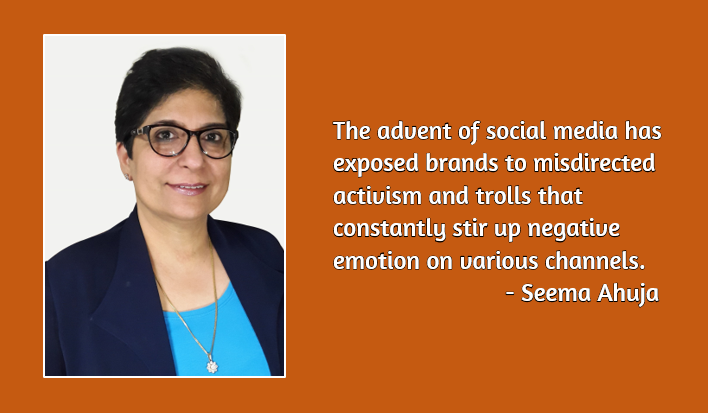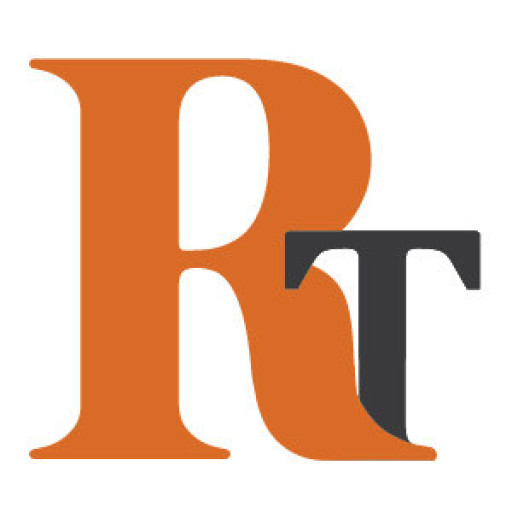Seema Ahuja, is currently Vice President & Global Head of Communications at Biocon Limited. She is a multifaceted Corporate Communications & Brand Management expert who has been in Senior Leadership roles in the Pharma & Life Sciences Sector since 2007. During her career of over 25 years, she has played a critical role in reputation management and brand building for various leading public listed companies in the Hospitality, Pharma, Life sciences and Biotech sectors, key ones being Biocon, Ranbaxy, Lupin Pharma and Jubilant Life Sciences.
Recently, she spoke with Shree Lahiri on the healthcare industry, challenges faced, preparing for crises, the future and more…
RT: How would you evaluate the Healthcare PR opportunity today?
SA: Healthcare PR is a niche area and its landscape is constantly evolving. While it presents several consumer-centric engagement options for hospitals and diagnostic brands, it poses several challenges for the prescriptions-driven pharma and life sciences sector. In this dynamic and quick-paced sector, organisations need to have a direct connect with the consumers using various digital platforms. But pharma healthcare players are required to engage with consumers within the regulatory framework, which does not allow pharma companies to indulge in any direct promotion of their products. This is where out-of-the-box ideas for engaging with Prescribers, Payers and Patients become very critical.
RT: Healthcare has faced a number of crises. What do practitioners like yourself do to prepare for potential crises?
SA: Crisis Management is a critical aspect of reputation management for all brands. For the Life Sciences sector it becomes even more critical as it deals with Life. A recent survey by Forbes Insights revealed that 88% of more than 300 executives, mostly senior executives and board of directors, were focused explicitly on managing reputational risk as a key business challenge.
This is because stakeholders today care more about what an organisation stands for than what it sells. Today, there is higher scrutiny of organisational behaviour and corporate social responsibility than there was at any point of time before. The advent of social media has also exposed the brands to misdirected activism and trolls who are constantly stirring up negative emotion on various channels targeted at tarnishing the reputation of the brands. As a result reputation management today has become a 24X7 imperative.
I can say from my personal experience in handling crisis situations that prompt and strategic action can not only address crisis but also convert negative buzz to positive sentiment in the public mind space.
The top five things that organisations need to do to effectively deal with crises maybe listed as:
- ANTICIPATE RISKS
- BE PREPARED
- ACT TIMELY
- BE TRANSPARENT & FACTUAL
- BE HUMANE
RT: What are the key challenges faced by the Healthcare and Pharma business today?
SA: The global pharma and healthcare landscape has been witnessing big ticket consolidation aimed at business expansion to offset the huge pressure on sales and margins. The entire ecosystem is grappling with the expiration of patents, spiralling costs of innovation yet depleting research pipelines, increasing government pressure to lower drug prices so that healthcare expenses don’t spiral out of the reach of patients in emerging as well the developed markets. The biggest challenge therefore is affordability and access.
Collaborations in the area of discovery and development, manufacturing and commercialisation are the new order aimed at accelerating the pace of innovation and time to market in the run up to address unmet patient needs.
RT: How does the in-house communication team manage and navigate regulatory issues?
SA: When regulatory issues crop up it is crucial for the organisation to be transparent, specific and straightforward in its communication. We have all seen the huge reputational damage that the Indian pharma sector has undergone due to the onslaught of unfavourable regulatory audits. In the last few years, several Indian pharma companies have received a slew of warnings for failing to meet the US FDA standards after the US regulator increased its scrutiny of local drug makers that have been steadily growing their market share in the US. However, not all of them have been as severe as they have been made to sound.
To address the adverse publicity and help diffuse the situation, the in-house communication team and PR consultancies need to engage proactively with media to correct perceptions and engage in advocacy through industry bodies and patient support groups. It is important to note that the communication teams need to engage with various stakeholders and not just the media to sensitise them on the real issues on a regular basis as lack of communication leads to speculation which is more damaging.
RT: What would you say is the future of Healthcare PR?
SA: The future of healthcare PR will be data driven and patient centric, enabled by deeper social media penetration. As highly aware and engaged pool of patients and care-givers demand in-depth healthcare information, it will need to be fulfilled by healthcare providers in a responsible manner.
Big data is going to play a major role and will provide new challenges and opportunities for all communicators. As people continue to move across platforms, sharing and reinforcing healthcare information will be about precision communications. What we will experience is the convergence of the Communications strategies of B2B and B2C healthcare companies.
In the future, healthcare will go from general to personal. The “Internet of Things” will connect devices that can support predictive medicine and products that link a patient’s wellness to their lifestyle will go from luxury to necessity.






Be the first to comment on "Communicator Speak – Seema Ahuja"